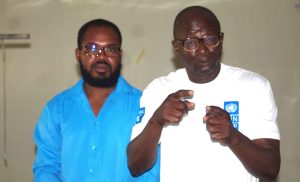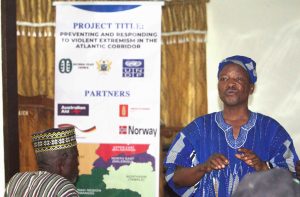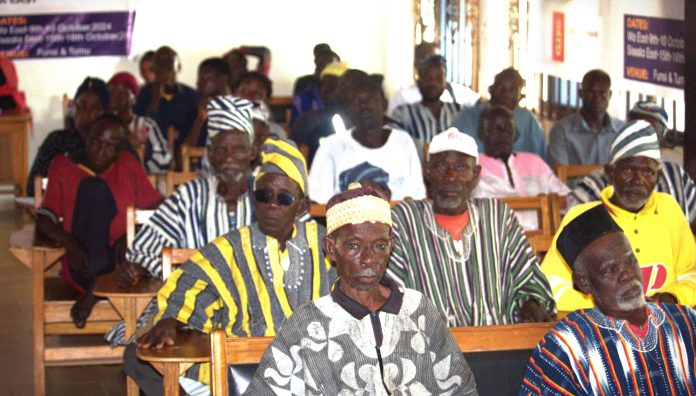The Upper west regional peace council in partnership with UNDP Ghana with funding support from the embassy of Denmark, has organized a two day training session for traditional authorities and religious leaders in Wa east on how to prevent and respond to violent extremism in the Atlantic corridor.
Addressing the participants, the executive secretary of the upper west regional peace council Mr. Cliford A. Tampuori emphasised that the main aim of the training was to strengthen the capacity of the traditional authorities and religious leaders in conflict management and peace building, especially violent extremism.
According to Mr. Tampuori, the Atlantic corridor project seeks to prevent and address the immediate localised drivers of radicalization leading to violent extremism in targeted communities’ by-supporting mechanisms for early warning and early response at the local level.
The executive secretary mentioned that, addressing early warning signs, fostering dialogue, and strengthening community resilience to promote peace, and sustain social cohesion will help to thwart the spread of violent extremism.

During the workshop, Mr. Richmond Dombo, the principal research officer of the Upper West Regional House of Chiefs, who served as a facilitator encouraged the participants to communicate using the ghost concept. He claims that in order to effectively apply the ghost principle, people need to be gentle, honest, and open-minded. They also need to be specific and engage in dialogue to prevent violent extremism.

The traditional authorities and religious leaders expressed their gratitude to the Upper west regional peace council, UNDP Ghana and the embassy of Denmark for giving them such eye opener training. They added that the training was going to help them maintain peace in their various communities.
The Upper west regional peace council’s object is to facilitate and develop mechanisms for conflict prevention, management, resolution and to build sustainable peace in the country.

